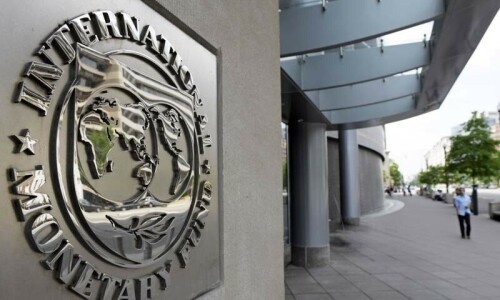TEL AVIV: Israel’s $3.5-billion sale of its Arrow 3 missile defence system to Germany, sparked by security fears after Russia’s Ukraine invasion, is the biggest yet for the small country’s outsized arms sector.
With its armed forces steeled by a tragic history of war, Israel is now the ninth largest exporter of military equipment and technology, according to the Stockholm International Peace Research Institute.
Israeli arms exports reached a new record of $12.5bn dollars last year, double the amount from three years earlier, says its defence ministry.
Israel’s fears of attacks from Iran and other foes have led it, together with its top ally the United States, to develop hi-tech systems designed to knock incoming rockets and missiles out of the sky.
Berlin’s purchase of Arrow 3 had to be approved by Washington because the system was jointly developed by Israel Aerospace Industries (IAI) and US aerospace giant Boeing.
The signing of the deal was a “historic day” for both countries, German Defence Minister Boris Pistorius said at a press conference alongside his Israeli counterpart Yoav Gallant.
The system aims to shield Germany and its neighbours from ballistic missiles that can carry nuclear warheads by intercepting them as far as 2,400 kilometres away, outside the atmosphere.
‘Europe always a priority’
“The war in Ukraine created a demand for military systems all over the world,” said Uzi Rubin, considered the father of Israel’s missile defence programme.
“This is a situation that benefits all Western defence industries — European and US as well as Israel’s,” added Rubin, an expert at the Jerusalem Institute for Strategy and Security.
While Israeli arms sales have been fuelled by the Ukraine war, Israel has refrained from selling weapons to that country in an apparent effort to avoid antagonising Russia.
In another major contract, newly minted Nato member Finland was quick to announce plans to buy an Israeli defence system against aircraft, rockets and missiles, for 316 million euros.
“The war in Ukraine is likely to further increase European demand for systems that Israel already has a strong position in,” said Elliot Chapman, Middle East and North Africa analyst for British open-source defence intelligence company Janes.
“Europe has long been a priority for Israeli exports,” he added.
“That said, European countries are keener than ever to keep capabilities and funding in their borders,” he said, citing EU concerns about an over-reliance on defence equipment made elsewhere.
French President Emmanuel Macron in particular has argued Europe must maintain its “strategic autonomy”. Since its foundation, Israel has received lavish US military aid — more than $125bn, according to a US State Department report from 2021.
This has helped it build “one of the world’s most capable, effective militaries and turned the Israeli military industry and technology sector into one of the largest exporters of military capabilities worldwide,” the report said.
While conflicts have boosted Israeli arms sales, so has the US-brokered peace initiative dubbed the Abraham Accords, under which Israel normalised ties with the United Arab Emirates, Bahrain and Morocco in 2020.
Published in Dawn, September 29th, 2023









































Dear visitor, the comments section is undergoing an overhaul and will return soon.